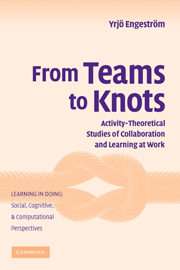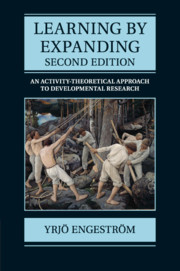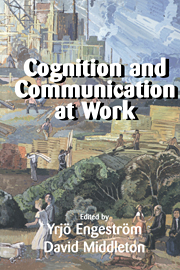From Teams to Knots
Teams are commonly celebrated as efficient and humane ways of organizing work and learning. By means of a series of in-depth case studies of teams in the United States and Finland over a time span of more than 10 years, this book shows that teams are not a universal and ahistorical form of collaboration. Teams are best understood in their specific activity contexts and embedded in historical development of work. Today, static teams are increasingly replaced by forms of fluid knotworking around runaway objects that require and generate new forms of expansive learning and distributed agency. This book develops a set of conceptual tools for analysis and design of transformations in collaborative work and learning.
- Different case studies of teams at work, professionally and extra-professionally
- Activity theory is applied in a wide range of organizational settings
- Learning at work is put into the context of organizational change
- The future challenges of 'mycorrhizae' organizations are made explicit
Reviews & endorsements
'… rich in data and conceptual analysis … admirable scholarship …' Mike Bonner, PsycCRITIQUES
'Yrjö Engeström has produced the kind of scholarly synthesis of research on teamwork in organizational settings that social scientists have been waiting for ever since the appearance of his classic prolegomenon, 'Learning by Expanding'. It is both comprehensive in its critical and illuminating treatment of competing lines of research and theory, clear and compelling in its treatment of the work of his research team, and stimulating in its thoughts about the future of work.' Michael Cole, University of California, San Diego
Product details
April 2008Hardback
9780521865678
278 pages
235 × 159 × 25 mm
0.52kg
42 b/w illus. 8 tables
Available
Table of Contents
- 1. Teams and the transformation of work
- 2. Disturbance management and masking in a television production team
- 3. Teamwork between adversaries: coordination, cooperation, and communication in a court trial
- 4. Displacement and innovation in primary care medical teams
- 5. Crossing boundaries in teacher teams
- 6. Knowledge creation in industrial work teams
- 7. Teams, infrastructures, and social capital
- 8. From iron cages to webs on the wind
- 9. Knotworking and agency in fluid organizational fields.









